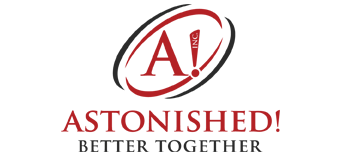Dr. Brenda Rossow-Kimball, Astonished! Board Chair, and Assistant Professor in the Faculty of Kinesiology and Health Studies at the University of Regina, brings together Strengths Perspectives theory, and conversations with the parents, founders, and vision keepers who began Astonished!
She writes:
Historically, the dominant narrative in the ‘helping’ professions such as social work, disability studies, and medicine have taken a ‘deficits-based’ approach; a professional assesses an individual’s problems and creates an intervention to ‘deal’ with their inadequacies, illness(es), deficits, lack of achievement or functioning, and so on (Anderson & Heyne, 2012). The nature of the ‘helping work’ undertaken by professionals is situated in a negative state and defined by one’s problems. The strengths perspective is an attempt to write a counterstory of possibility, hope, expectation, and independence in response to a dominant grand narrative of inadequacy, hopelessness, underachievement, and dependence.
Saleebey (2009) writes that the incentive to develop a strengths perspective is a response to “our culture’s continued obsession with psychopathology, victimization, abnormality, and moral and interpersonal aberrations” (p. 2). For example, a deficits approach sees the person as a ‘case’ or ‘diagnosis’ whereas the strengths perspective sees the person as unique with talents and resources; the deficits approach creates an intervention that is problem-focused whereas the strengths perspective will initiate support that is possibility-focused; the deficits approach sees the professional as the expert whereas the strengths perspective sees that individuals, families, and communities are the experts; finally, the deficits approach aims to eliminate illness or dysfunction whereas the strengths perspective aims to enhance one’s well-being and quality of life (Anderson & Heyne, 2012).
“Families are the basic, foundational social units in every society (DeFrain & Asay, 2008, p. 2), yet research on ‘families’ has typically taken a deficits-based approach by emphasizing the problems or weaknesses in families or by highlighting the individuals in the family unit who causes ‘problems’ or stress. For families who live alongside a child experiencing disability, the dominant narrative is negative, citing the experience as stressful (Aneshensel, 2014), depressing (Emerson, 2003), hopeless, ‘copeless’, laborious, and burdensome, leading to family dysfunction and breakdown (McConnell & Savage, 2015). However, “If one looks only for problems in a family, one will see only problems. If one also looks for strengths, one will find strengths” (Defrain & Asay, 2008, p. 5).
My thinking has been inspired by the initiative and ingenuity of the parents and vision keepers who began Astonished! many years ago. Because little research focuses on the positivity and strengths within families when facing new and unexpected challenges, I thought the strengths perspective would be an appropriate framework in which to think about the lived stories of mothers and fathers who are parenting a family unit that is experiencing disability.
The strengths perspective suggests that when facing adversity, we ought to put the lens of focus on “what people want their lives to be like, and what resources and strengths they have or need to get there” (Saleebey, 2006, p. 12), I have learned that families, indeed, pull on their strengths and resources to regain and maintain the coherence that existed prior to disAbility. As one parent stated so well, “Everybody sets a bar for their family standards. Ours simply adjusted and now this is our normal. You readjust your normal.” For families experiencing disability, the framework of the strengths perspective may be a response to the longstanding dominant narrative that suggests the experience of parenting is primarily laborious, onerous, family-breaking, and dysfuntional. Families carry on [with] “one foot in front of the other”, “extreme strength”, and “no fear”.
“It’s just ordinary life.”
